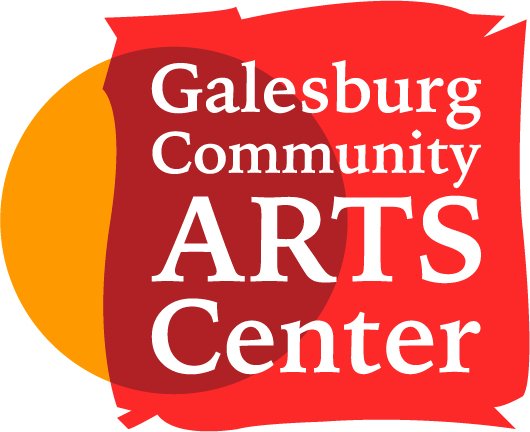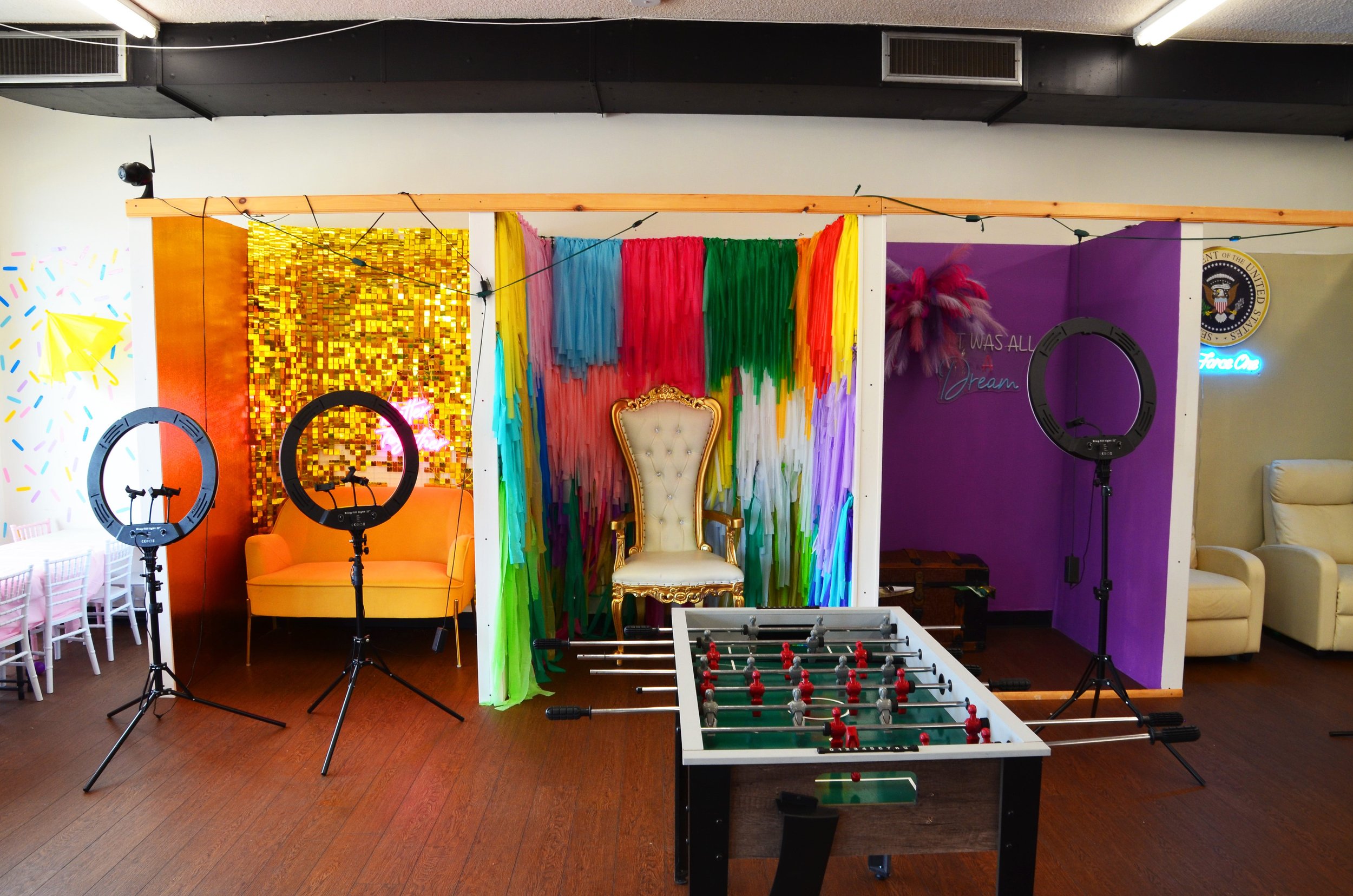Entrepreneur Spotlight: Gogo
GET TO KNOW GOGO - SEPTEMBER 2024
Interview by Maeve Reilly | Photos by Ana V. Fleming
Gorette Kupa has lived up to her nickname, Gogo. She is constantly on the move, as the mother of two sons, a businessperson, entrepreneur, and president of a foundation. She runs the Galesburg Selfie Museum, where we met her to learn more about her journey to running a business in Galesburg.
What was your experience when you first moved to Galesburg?
I tried to get a job as a banker. I had experience and spoke English, but I couldn’t find a job. I started working at the Smithfield factory in Monmouth. I cried every day—I had never done such a physical job in my life. I had a miscarriage and then a stroke. I was disabled and lost the use of my legs. It was very hard for me—I thought I was dead. When I learned to walk again, I told myself that if God gave me the ability to live through this and survive, that meant He has a plan for me. So, I told my husband that I wanted to do something not only for me, but also to leave a legacy for my children, Jad (age 2) and Heaven (3).
I started doing research around Galesburg and found the Regional Office of Education, so I took classes there to improve my English. I found out how to write a resume—in Africa, you have to go into a lot of detail about all that you have done, but in the United States, you have to keep it short. The ROE referred me to Carl Sandburg College, and I started attending local events and meeting people and learning more about the community.
How did you come to open the Selfie Museum?
I wanted to open my own business and not work for other people. Between the time I quit my job at the factory and opened this, I was trying to find myself. The Selfie Museum is a result of many struggles. First, I wanted to open a plus-size clothing and a decorating store.
I went to Knox County Area Partnership for Economic Development (KCAP) and they taught me how to open a business. They answered all my questions. I went to a couple of banks to get a loan, but I didn’t have enough credit history. All my dreams just died.
My husband and I went to Atlanta for an anniversary trip, and we saw a selfie museum and I thought that would be cool in Galesburg. I really love this town and every time we go somewhere, I think of things that would be good to do in Galesburg.
The city has grants for entrepreneurs. We received a grant from the city that reimburses us for money we spent to build this—my husband and I built this.
I’m also an independent life and health insurance provider. I work with different companies depending on the needs of my clients. I can help people from my community and it’s a job I can do at home, so I have time for my family.
Tell us about the Lipanda Foundation.
It’s been hard for Congolese to become part of the community. The Congolese tend to go to their own people to get information. It took me time to leave my own community and find information. That was a big challenge.
The Lipanda Foundation helps French-speaking Africans with integration—anything that can lead them to be active members of the community. We start by bringing new people to English classes, ROE, the Covenant Church. We help them find jobs, workforce training, a house. We have a large African population coming to Galesburg and Monmouth to work at factories. About 20 Congolese arrived in June, and now we also have people coming from Angola and Haiti.
We need everyone to support the foundation. We need help with fundraising to achieve our goals.
This last two years we have witnessed how people can succeed and be useful to the community with a little help. One of our success stories is about Moise, a young man who was lab technician in Congo. He felt hopeless because he thought that he would never have the job he loved—he was ready to move to another city for another factory job. He found us and we told him that this was possible to learn English, find workforce training and get the job he deserves. Today he is a lab assistant at OSF St. Mary’s—he has made history and inspired others.
It’s important to have new people become more active in the community—the people that come through the diversity lottery have at least a high school diploma, they immigrate legally and after five years in the United States they can become U.S. citizens. It important to help them in the integration process—this is the only way to build a strong community.
Tell us a little about your background.
I am from the Democratic Republic of the Congo and moved to the United States in 2019. I have a bachelor’s degree in international trade and a master’s degree in economics. I worked for the Chamber of Commerce in Dubai, which had a partnership with a real estate company that brought me to the United States.
I’m an entrepreneur. I started my first business at 12 years old, I was selling waffles to my classmates. I would make them at home and take them to my class. Then I moved to selling slippers later in high school. In my last year of university, I got into the banking industry as a teller and six years later I was regional director. Along with my great career, I had my own business, a travel agency.
When I moved to the United States, I first lived in Washington, D.C., and New York, then I met again with Yannick, we were friend back in the DRC. We fell in love and begin our life together, but, unfortunately, the cost of living for him in Boston and me in New York was very expensive. He had a friend in Galesburg who said the cost of living was good, so Yannick moved here, and a few months later I followed him, and we got married.
It makes me proud to run this business. I know this is history. Maybe in 20 years, I won’t be here, but people will remember we had a Galesburg Selfie Museum run by a woman from Africa. —GOGO








